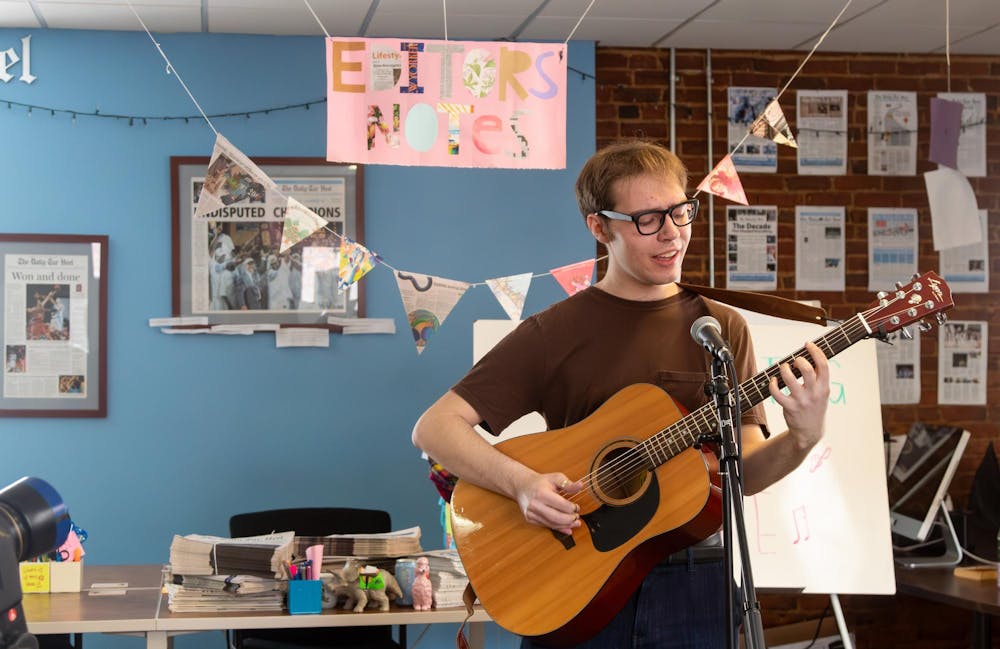UNC sophomore and guitarist Bill Moore fell down the rabbit hole of American roots music when he found the lyrics of Olde English folk songs in familiar bluegrass and Bob Dylan tunes.
“I just kind of wondered: ‘How is this possible?’” he said.
Exploring that history and cultural exchange led him to where he is now: playing the swing, jazz and blues guitar styles you would likely hear in the streets and warehouses of the N.C. Piedmont region a century ago — with allowance for personal style, of course.
But for Moore, whose debut album “New Piedmont Style” released this month, this is just what music is supposed to sound like.
The subject matter of the album’s songs, like “Durham Women” or “Hillsborough,” is hyper-local to Moore's native Chapel Hill. He is inspired to write about the landscape around him by what he calls “cowboy songwriters,” who wrote about the West with intense poetry.
When he wrote “Hillsborough,” Moore worked for the Music Maker Foundation — which financially supports blues and roots musicians. The foundation also provided the field recording equipment Moore needed to record his album, which took only a few hours in a small studio under an HVAC repair shop.
In his twice weekly drives to Hillsborough for work with Music Maker, Moore came up with the main hook: “It’s good to be back in Hillsborough” and built from there.
Shouting out locations in songs, Moore said, is a tradition in the style he most identifies with: the Piedmont blues.
The Piedmont blues — popularized in the Triangle during the early 20th century by Black working class musicians — is primarily dance music, utilizing Ragtime’s rhythms and major chords. The music was the soundtrack to tobacco auctions and Black social life in Durham between the world wars.




